- Below is the content from the press release--
(Head office: Shinjuku-ku, Tokyo; Representative Director: Mutsumi Saito), which operates Japan's largest postnatal care hotel "Maam Garden HAYAMA ( https://www.mom-garden.jp/ )" run by the Karaoke Pasela Group, has conducted a survey on the childbirth attitudes of Generation Z students. (Head office: Shinjuku-ku, Tokyo; President: Mutsumi Saito) has conducted a survey on the childbirth awareness of Generation Z students, targeting 101 job-hunting students and families who have not yet experienced childbirth.
■Survey summary
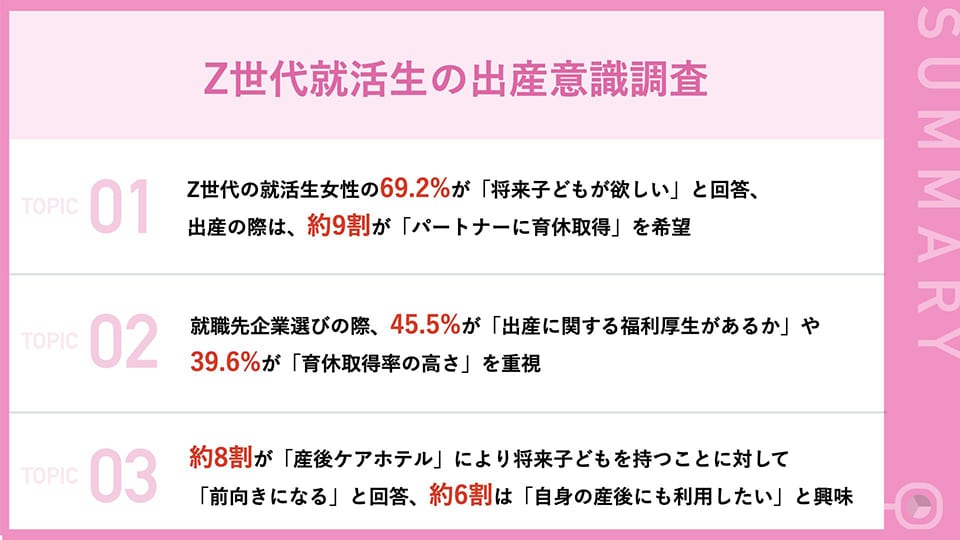
■ WHAT IS GENERATION Z?
The 'Millennial Generation', 'Generation Z' and 'Generation Alpha'. Generation Z is generally regarded as the generation born between the mid-1990s and the early 2010s, and is also a socially active group. We actually conducted a survey.
■Survey overview.
Outline of the survey: Attitude towards childbirth among Generation Z students
Method of the survey: Internet survey
Duration: May 18, 2022 - May 19, 2022
Valid responses: 101 students who have not yet had a childbirth and who are job-hunting families of 23 graduates.
APPROXIMATELY 70% OF JOB-HUNTING FAMILIES IN GENERATION Z ANSWERED "I WANT TO HAVE CHILDREN IN THE FUTURE".
When asked, "Q1. Do you want to have children in the future?" (n=101), 34.6% answered 'not desired' and 34.6% answered 'somewhat desired'.
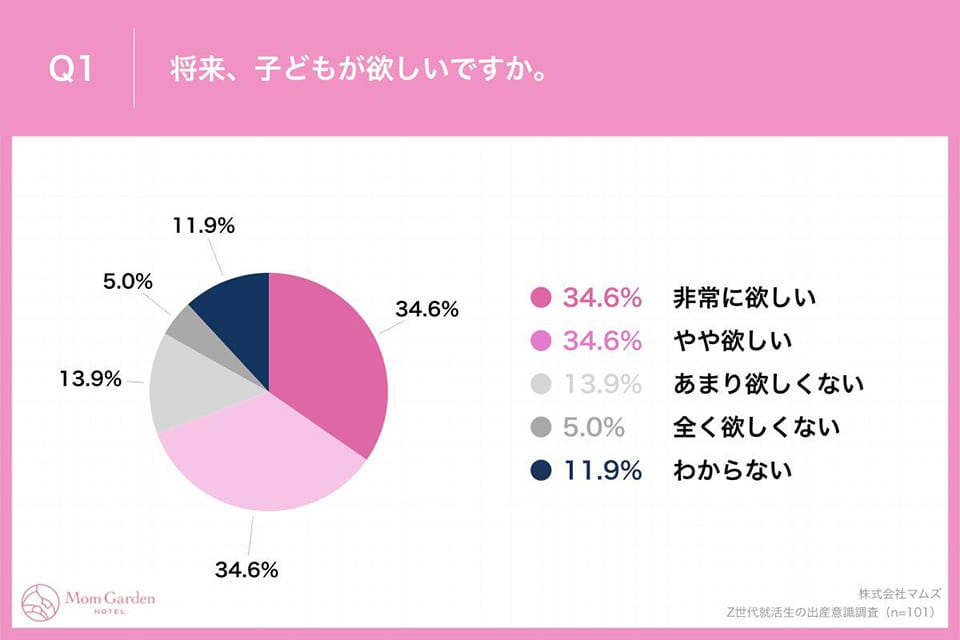
- Want to be unpopular: 34.6%.
- Somewhat want: 34.6%.
- Do not want much: 13.9%.
- Do not want it at all: 5.0%.
- Don't know: 11.9%.
The highest number of children desired, at 77.1%, is 2.
Those who answered 'unfavorably' or 'somewhat' in Q1 were asked 'Q2: How many children do you want? '
(n=70), 77.1% answered '2 children' and 18.6% answered '3 children'.
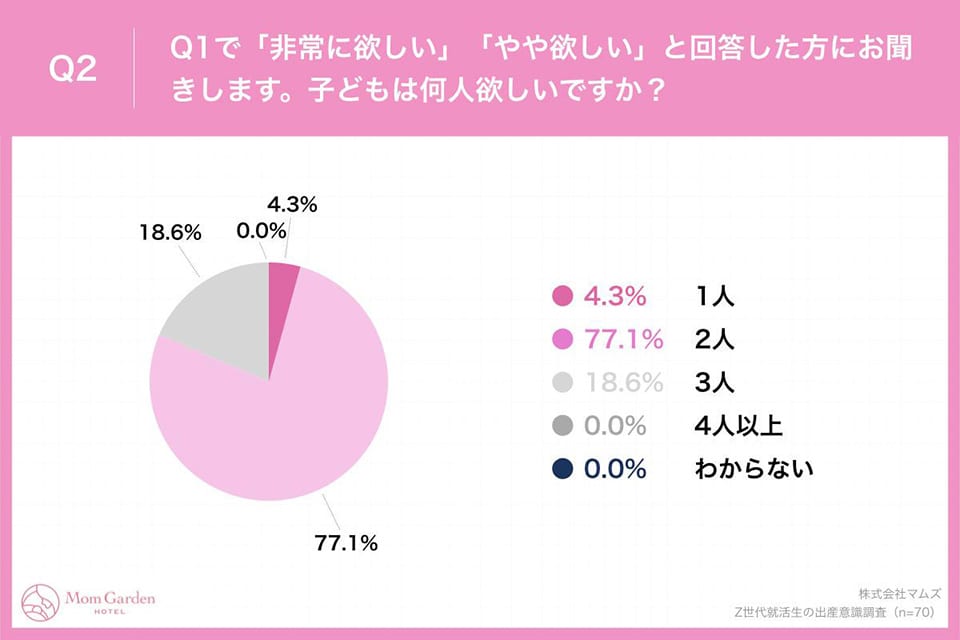
- 1 man: 4.3%.
- 2 men: 77.1%.
- 3 males: 18.6%.
- 4 or more: 0.0%.
- Don't know: 0.0%.
■ Reasons for not wanting to have children, concerns about the 'financial costs of raising children' and the 'practical and physical burden'.
Those who answered "not so much" or "not at all" in Q1 were asked "Q3. (Multiple answers)" ( n=19), 78.9% answered "Because raising children seems to be expensive", 63.2% answered "Because the psychological and physical burden of child-rearing seems unbearable" and 42.1% answered "Because the social environment is not one where children can grow up freely (infectious diseases, child-rearing support systems, disasters etc.)". The answers were.
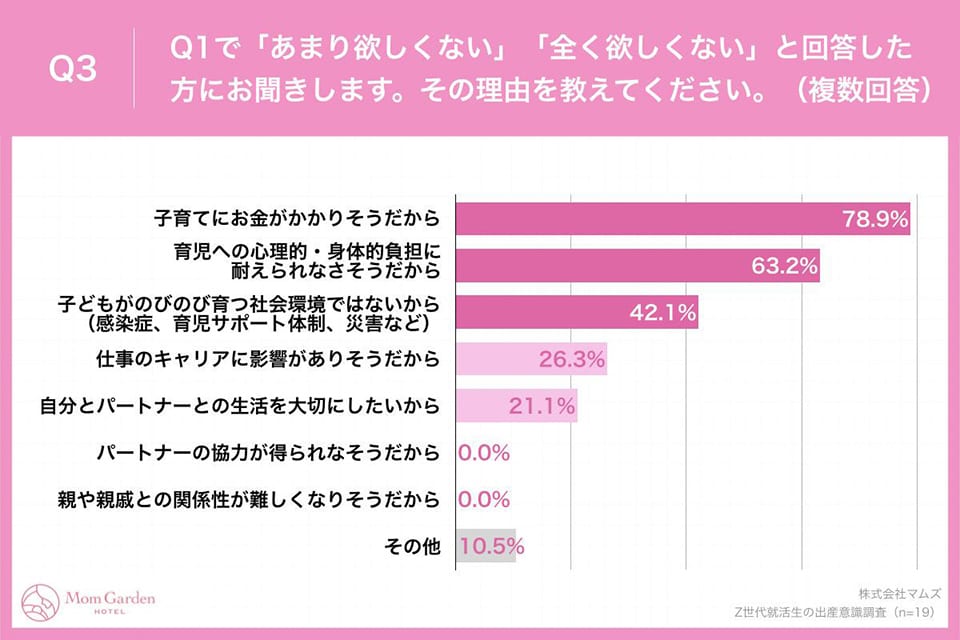
- Because it would cost money to raise a child: 78.9%.
- Because the psychological and physical burden of childcare seems unbearable: 63.2%.
- Because the social environment is not conducive for children to grow up freely (e.g. infectious diseases, childcare support system, disasters): 42.1%.
- Because it is likely to affect my work career: 26.3%.
- Because I value my life with my partner: 21.1%.
- Because it seems unlikely that the partners will cooperate: 0.0%.
- Because relationships with parents and relatives are likely to become more difficult: 0.0%.
- Other: 10.5%.
■ Around 90% of respondents would like their partner to take maternity leave when giving birth.
Q4: Assuming you were to have a baby, would you want your partner to take maternity leave? (n=101), 37.6% said they would like their partner to take maternity leave (for one to two months) and 34.7% said they would like their partner to take maternity leave (for six months).
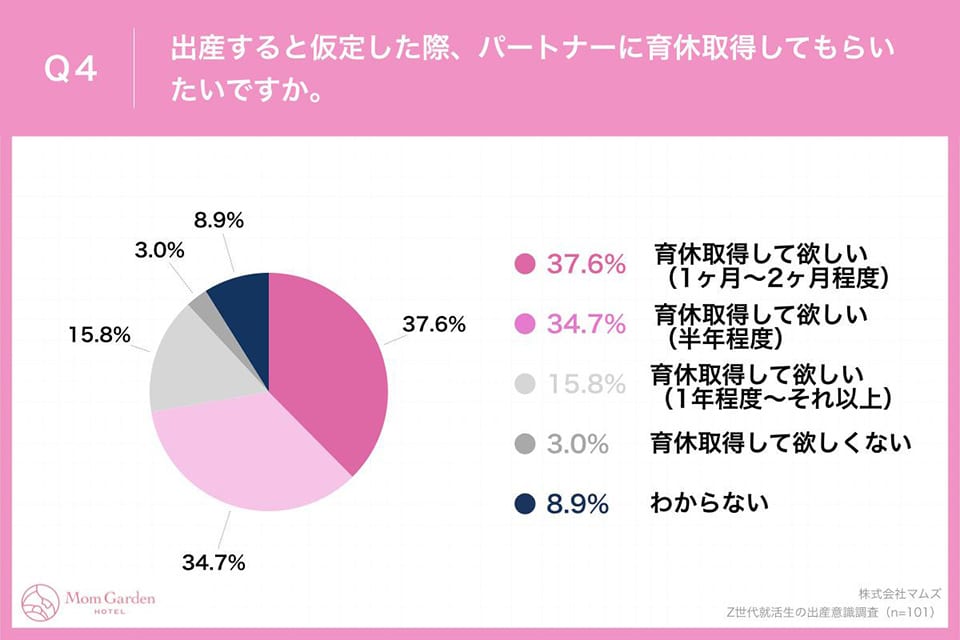
- I want her to take maternity leave (for one or two months): 37.6%.
- I want you to take maternity leave (about six months): 34.7%.
- Want maternity leave (about 1 year to more): 15.8%.
- Do not want them to take maternity leave: 3.0%.
- Don't know: 8.9%.
45.5% of respondents selected the company for its maternity benefits, while 39.6% selected the company's maternity leave rate.
When asked, "Q5. What do you consider important when choosing a company to work for?( n=101), 73.3% of the respondents chose 'Good workplace atmosphere', 45.5% chose 'Availability of maternity benefits' and 39.6% chose 'High rate of maternity leave '.




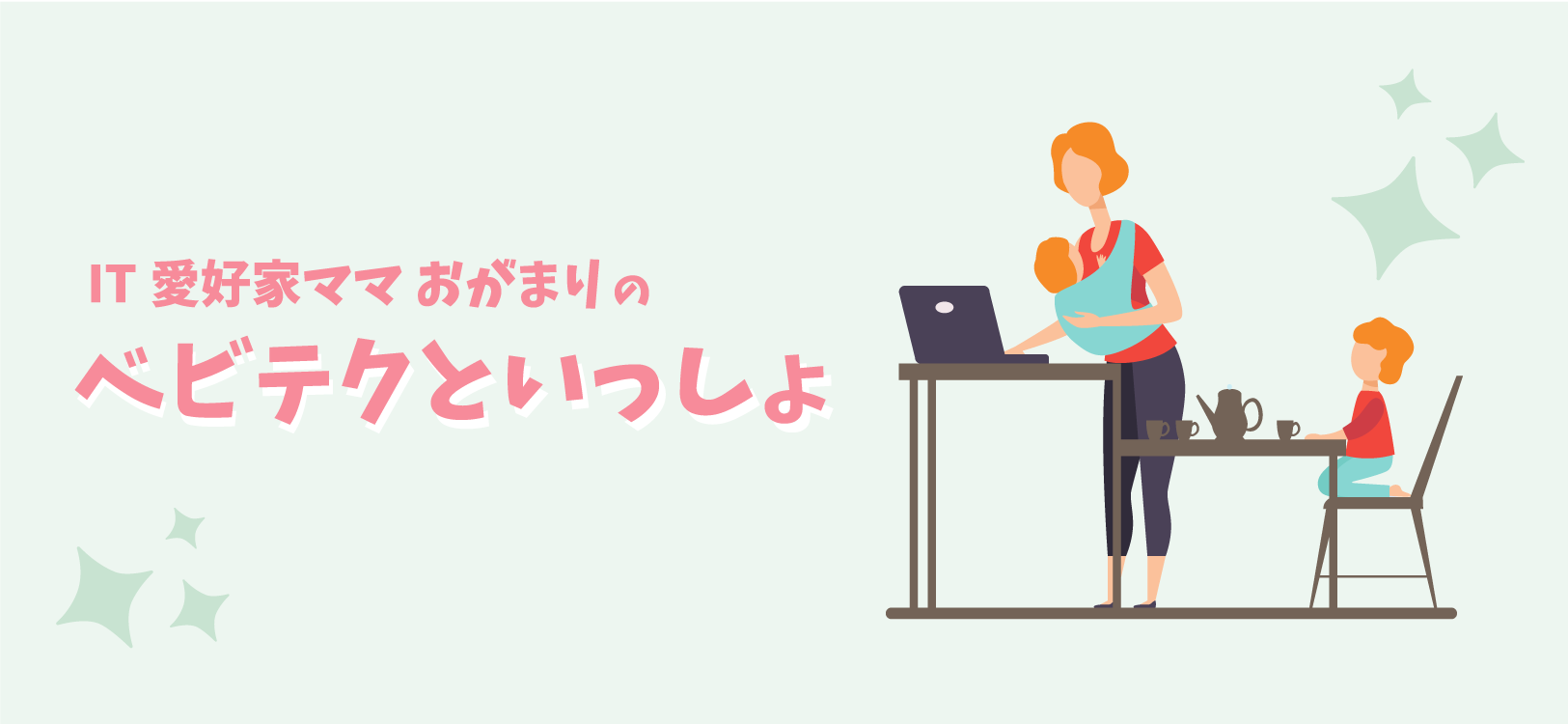


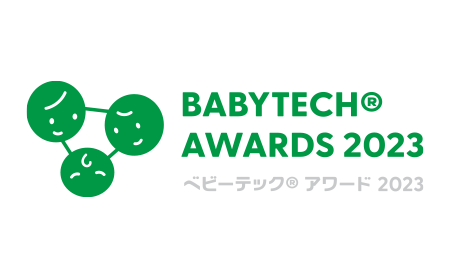

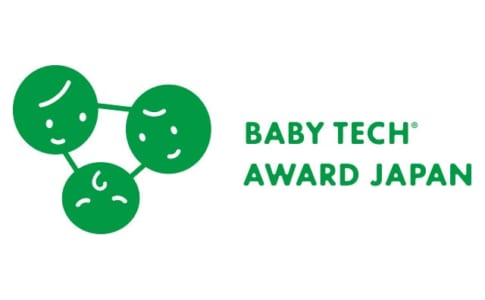





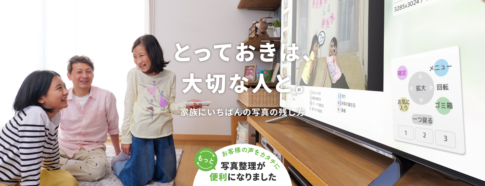

MUMS LTD, WHICH OPERATES JAPAN'S LARGEST POSTNATAL CARE HOTEL, MUM'S GARDEN HAYAMA, CONDUCTED A SURVEY ON CHILDBEARING ATTITUDES AMONG WOMEN WHO WILL GRADUATE IN 2011. DESPITE A CONTINUOUS DECLINE IN THE BIRTH RATE, AROUND 70% OF THE RESPONDENTS EXPRESSED A DESIRE TO HAVE CHILDREN IN THE FUTURE. IN ADDITION, MORE THAN 70% HAD CONCERNS ABOUT CHILDBIRTH, POSTPARTUM AND CHILDCARE, CLOSE TO HALF OF THE RESPONDENTS WERE AWARE OF THE AVAILABILITY OF CHILDBIRTH-RELATED BENEFITS AS AN AXIS FOR SELECTING A COMPANY TO WORK FOR, AND THE PRESENCE OF POSTPARTUM CARE HOTELS MADE THEM FEEL MORE POSITIVE ABOUT CHILDBIRTH.
Let's take a look at the details from the press release.